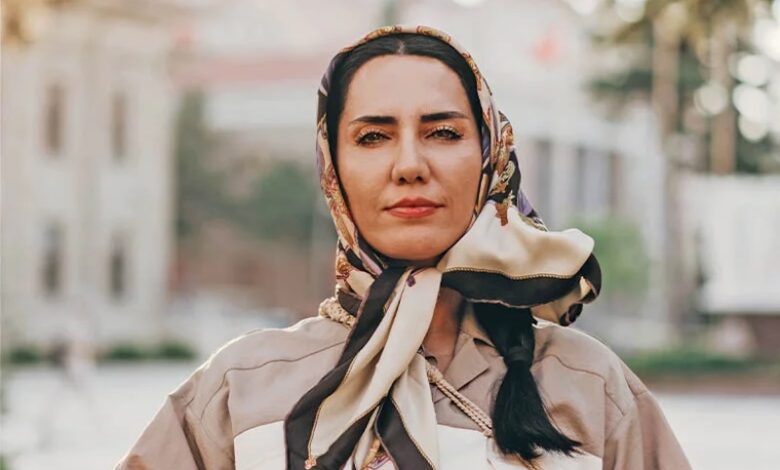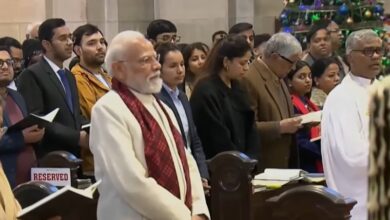
Christians, already targeted by the Islamic regime in Iran, are being arrested at an alarming rate after the war with Israel.
Most of the world has already moved on from the Iran-Israel conflict—with talks of long-term peace in the region. But inside Iran, the story is far from over. Social media clips have surfaced showing young Iranians quietly celebrating Israel’s win, hoping it might be the first step toward real change in their own country.
Nathan Rostampour, an Iranian-American pastor now in North Carolina, wants everyone to understand: the real fight isn’t with the Iranian people. “I want them to know that people of Iran love to be friends with people of Israel and the United States,” Nathan Rostampour, an Iranian-American church planting director in North Carolina, says. “So we need to separate these two things. We have Islamic Republic. That is, a dictator, a regime that has taken the Iranian people as hostage for 46 years, and people don’t want them.“
READ: Optimism grows in Israel for peace
The strikes by Israel to delay Iran’s acquisition of nuclear weapons was met with approval by many in Iran. “They are happy, because they know that the Israeli army is helping them to get rid of that regime,” he told Baptist Press.
It’s not clear if the war set in motion the popular uprising many are hoping for. What is known is that the Ayatollah is striking out, but it hasn’t dimmed the hope in the West. Inside Iran, that hope is fragile. Christians, a minority of about 800,000 among a sea of 91 million Muslims, are feeling the walls close in. Open Doors International ranks the nation ninth on its 2025 World Watch List of the 50 places where it is most difficult for Christians.
In the weeks since the ceasefire with Israel, at least 21 Christians have been arrested in cities like Tehran, Rasht, Urmia, Kermanshah, and Varamin, according to UK-based non-profit Article18. Their alleged crimes? Possessing Bibles. Having the wrong conversations online. And, in some cases, simply existing as evangelical Christians—a group Iran’s authorities often smear as “Zionists” or “deviant,” lumping them together with the country’s enemies to justify harsh punishments.
Article18 isn’t alone in sounding the alarm. UN Special Rapporteurs Mai Sato and Nazila Ghanea have condemned the regime’s “dehumanizing rhetoric” and warned that post-conflict crackdowns are being used to “suppress dissent and increase repression.” The pattern is ugly and familiar: detainees accused of “collaboration” or “espionage,” minority communities labeled as traitors, and prisoners like Aida Najaflou—charged for social media posts, deprived of clean water and food, and cited for possessing a Bible, which is now, in some cases, officially a prohibited text.
Many are forced to leave their families and flee the country, such as Sahar, who’s story was told by Open Doors.
Yet, even as the regime tightens its grip, faith and solidarity persist. Many Christians have been forced to flee Tehran and are now being quietly sheltered by fellow believers in safer areas. “They are loving them. They’re caring for them. They’re praying for them,” Rostampour says, even as internet disruptions cut families off from each other and pastors from their flocks.
“It’s so important to pray for us to have the internet, to have phone connections, because we don’t want to lose this connection with our Iranian brothers and sisters,” Rostampour pleads.
As the regime seeks to isolate, silence, and punish, Iran’s Christians are holding on to each other—and to the outside world—for dear life. In a country where hope is dangerous, every prayer and every act of care is an act of defiance. The world must not look away.
Precise details of the cases involving arrested Christians “cannot be divulged at this stage,” Article18 stated, adding that some of the cases relate to allegedly possessing Bibles, while others have been threatened with charges under a newly proposed law seeking to enforce harsh punishments for those alleged to have collaborated with “hostile states” including Israel and the US.
Many Christians, who fled the capital of Tehran during the war, are hesitant to return because of the increased persecution. They’ve fled to the homes of fellow believers in the countryside or other cities. “They are loving them. They’re caring for them. They’re praying for them,” Rostampour says. And so there are a lot of prayers and care and support, even inside the country from other pastors and believers that are in safe regions, for the people that are in dangerous regions.”
–Dwight Widaman | Metro Voice, with additional reporting from The Jerusalem Post.








